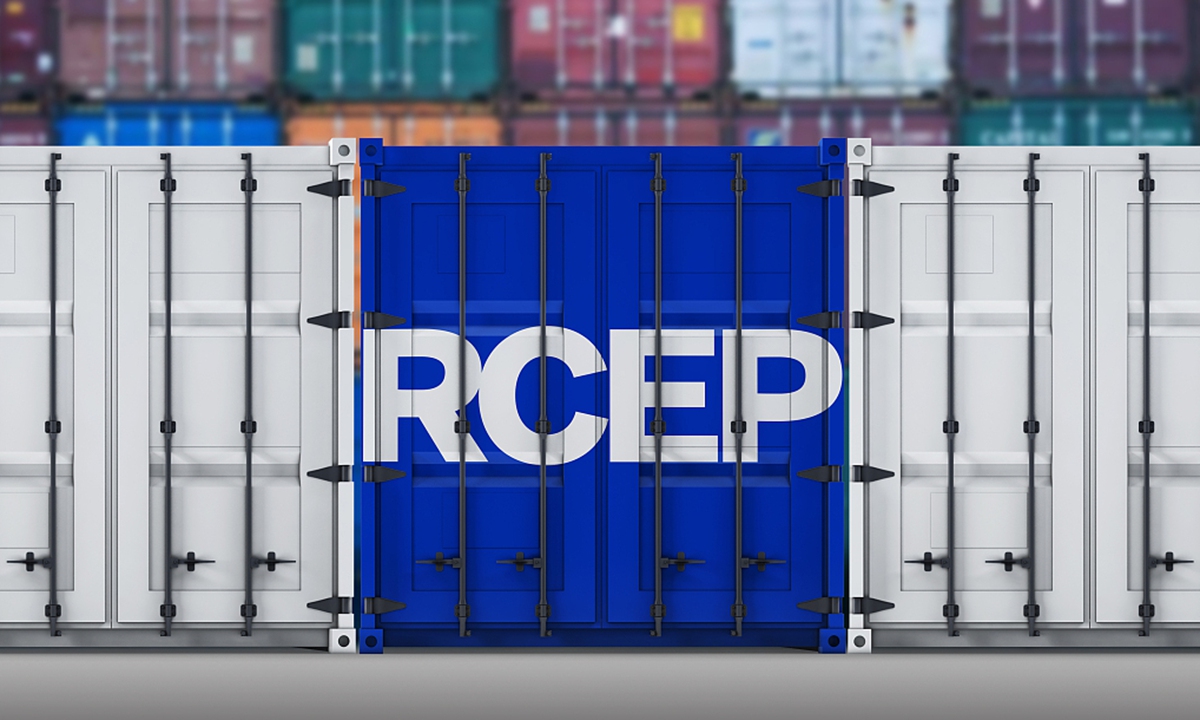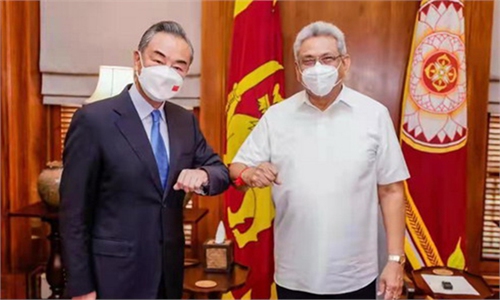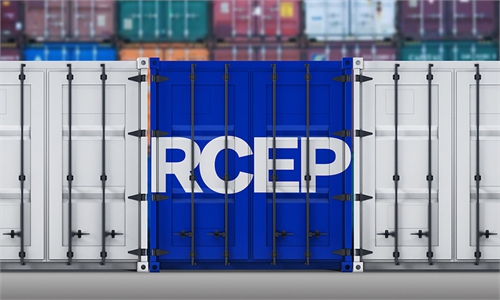
Photo:VCG
China's Ministry of Finance on Thursday announced that South Korea will adopt the favorable tariff rates of the Regional Comprehensive Economic Partnership (RCEP) trade pact starting from February 1, as the country has finished ratification of the deal.The RCEP came into force on January 1 after 10 countries finished ratifying the pact, extending Asia-Pacific industrial chains and forming the world's largest free trade zone.
After the RCEP comes into force in South Korea, the pact will play a role in enhancing regional trade and economic cooperation and help RCEP members to enjoy win-win results and mutual benefits, said a statement from the ministry.
Under the RCEP, tariffs on some semiconductor modules will be lowered to zero, a move estimated to help mitigate global chip shortages.
Analysts pointed out that in addition to boosting trade among the 15 members, the RCEP will strengthen trade relations between China, South Korea and Japan and is likely to bring closer cooperation to shore up their supply chains. Among the 15 RCEP members, the economies of China, Japan and South Korea account for 82 percent of RCEP economic scale.
There is definitely a need for China and South Korea to deepen cooperation on industrial supply chains, given the fact that China is the top export destination and a crucial market for South Korean products, Park Min Young, Beijing office chief representative for the Korea International Trade Association, told the Global Times on Thursday.
Auto production, especially new energy vehicles, and other areas involving high-tech innovation, notably the semiconductor sector, will benefit from stronger cooperation between the two countries, Park said.
According to a joint survey by the Global Times Research Center, Maeil Business Newspaper and Nikkei, most entrepreneurs from China, Japan and South Korea are optimistic about the RCEP, as they agree tariff reductions will help accelerate export expansion and production cost reductions.
Global Times



